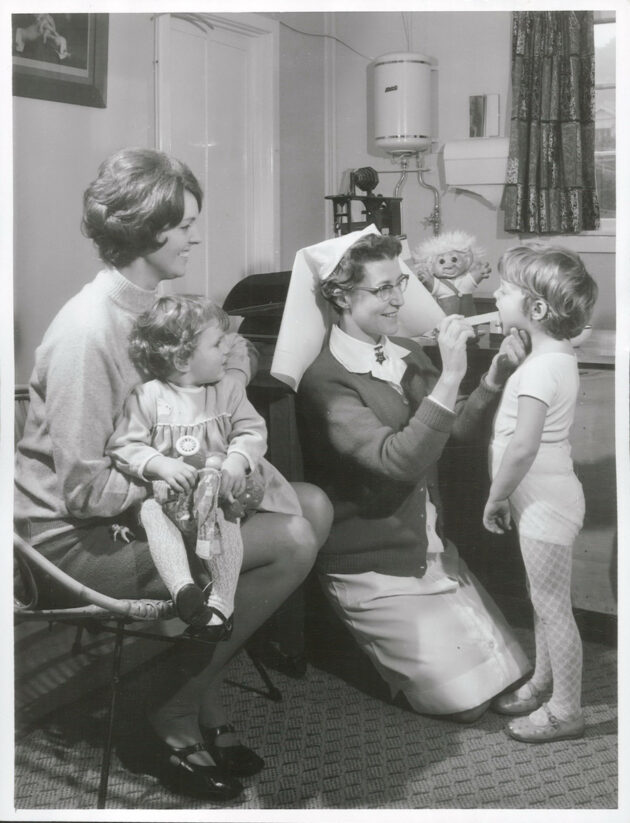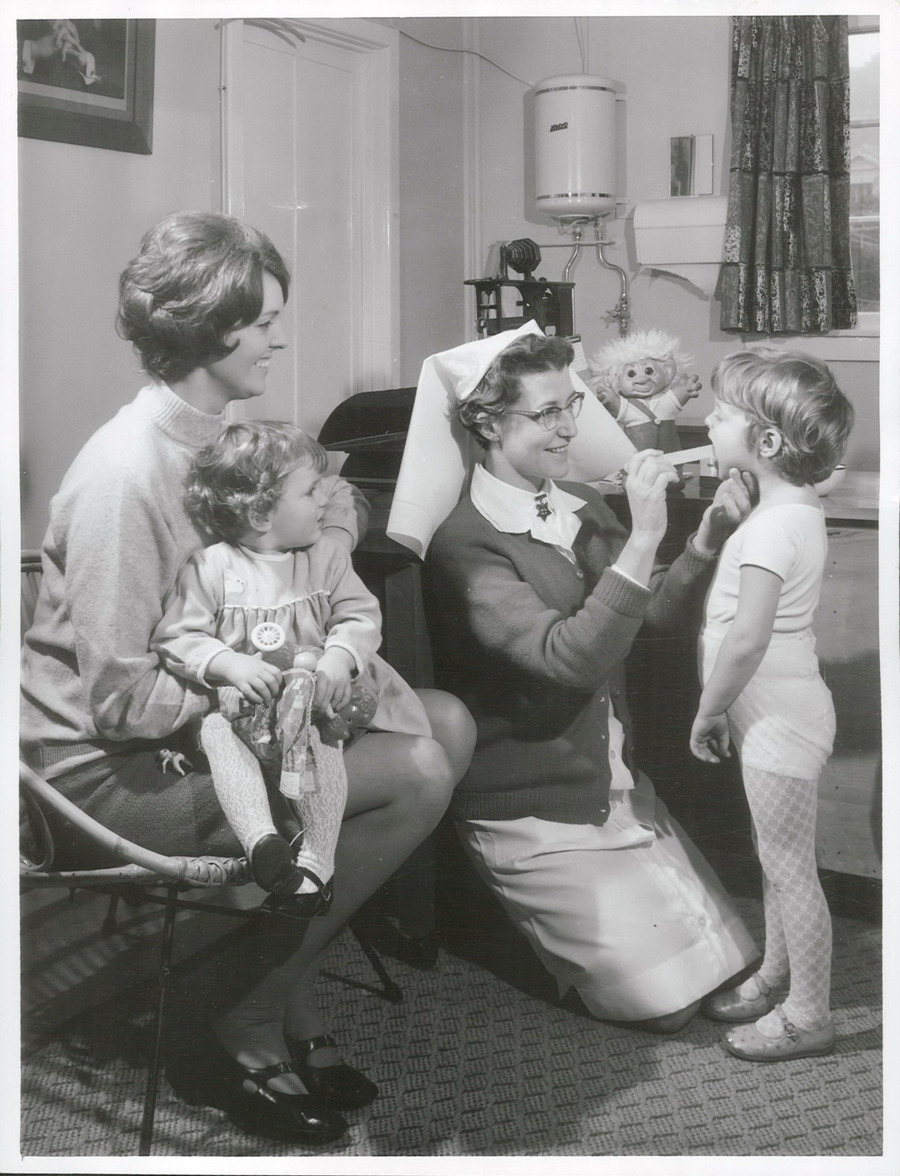Graham Adams
democracyproject.nz
Mothers are aggrieved by what some say is a racist policy instituted by New Zealand’s most cherished parenting organisation. Graham Adams argues it is just one example of growing dissatisfaction over preference granted on grounds of ethnicity.
Graham Adams is a journalist, columnist and reviewer who has written for many of the country’s media outlets including Metro, North & South, Noted, The Spinoff and Newsroom
In terms of the nation’s traditional iconography, it’s hard to decide whether Sir Edmund Hillary or Plunket nurses rate more highly in the popular imagination.
For many New Zealanders, Hillary represents the epitome of individualistic adventure while Plunket nurses looking after anxious mothers and vulnerable babies represent the best of community spirit.
Nevertheless, news came this week that Plunket is a “white supremacist” organisation, for which root-and-branch regeneration will be inadequate. (See Cate Broughton’s Plunket takes on its history, and future, to be ‘a better Treaty partner’, and a response to this by Lynda Bryder: Plunket founder driven to reduce high infant mortality rate.)
This assault on Plunket’s reputation — let alone its very existence — will seem to many as outrageous as someone demanding Sir Ed’s image be taken off the $5 note because he was a white supremacist who denied Tenzing Norgay the chance of being the first person to stand on the summit of Mt Everest.
The case against Plunket — a charitable trust largely funded by taxpayers — rests mainly on views on race and eugenics held by its founder, Sir Truby King, who died 83 years ago in 1938.
No matter the immense good his organisation has done since 1907 — or the fact King’s views on race and women were hardly unusual at the time — the sins of the father must apparently be visited upon the daughters who have continued his much-lauded legacy for more than a century.
No matter either that Plunket has moved to improve its practices with regard to Maori and Pasifika children — including rebranding itself as Whanau Awhina Plunket and changing its logo to better acknowledge its founding Maori midwives Mere Harper and Ria Tikini.
However, National Hauora Coalition clinical director Dr Rawiri Jansen says the organisation should be defunded and disestablished.

He outlined the reasons for his scorched earth approach:
“I think they are trying to recycle a white supremacist organisation and I don’t support it. They are not fit for purpose. They are not fit for our Aotearoa health system going forward…
“Now Plunket is trying to reimagine itself and do a better job, it’s failing at it. My point is not trying to test them against doing a better job, the point is they shouldn’t be part of our system.”
Whanau Awhina Plunket trust chair Dame Fran Wilde dismissed the allegations that Plunket is a “white supremacist” organisation as “just nonsense”.
She said Plunket was “ahead of the pack” in trying to make positive changes. “All the whanau and babies that we care for now wouldn’t get any health care if you just closed it down and started a new organisation. I mean, it’s kind of a ridiculous notion.”
While the news media hasn’t taken a deep interest in the political manoeuvrings around Plunket, mothers certainly have taken a keen interest in its policies — and many of them aren’t happy. Last month, a Coromandel mother — who had received help from Plunket after she suffered severe post-natal depression — posted a petition on change.org.
She had heard from many mothers that Plunket nurses had told them they were now obliged to focus on Maori and Pasifika babies (alongside those with “higher needs”) and therefore the usual run of Plunket appointments for other ethnicities would have to be curtailed.
Her petition stated:
“Plunket nurses can no longer see babies over 15 weeks old unless babies and families are of Maori/Pasifika descent and some other babies who have higher needs such as falling in the premature category.
“The government have left our Plunket nurses to face the backlash of this. There has been little to no consultation and it has been done in an extremely sneaky way! Let’s take this back to Jacinda and her government and demand some answers and some solutions so that we can make Plunket accessible to all families like it has been for many years!”
In just a few days, the petition gained more than 6000 signatures — including a significant number by mothers relating their own experiences with Plunket.
After media inquiries, Plunket responded with a message on its Facebook page:
“This information is incorrect. The government has not limited who our nurses can see, and this petition is sadly based on misinformation. We are here for all Kiwi whanau and families who need us. The way in which people routinely access and receive our services will depend on their level of need. Everyone will still be able to access our services.”
Commenters were quick to point out that the carefully worded statement didn’t actually deny the allegation that Maori and Pasifika babies would take precedence — only that “the government has not limited who our nurses can see”.
Among the more than 320 comments on Plunket’s Facebook post, many were from mothers confirming that Plunket nurses had told them that the rules had changed. Some accused the charity of being racist.
The issue was debated widely on social media. On a different website, one mother said:
“I spoke with a Plunket nurse today… All newborns will get three visits, then only target people will get any more visits. (She was told the wealthy & white will seek help elsewhere.) Plunket staff are too scared to speak up in fear they will lose their jobs.”
Another mother posted on a parenting site:
“Our two-year [Plunket] checkup was meant to be this week. I’d asked to reschedule and received this text back:
‘I’ve been meaning to call you as I have to cancel M’s appointment. I’ve just been informed this week that the Plunket schedule has been changed. We are no longer doing checks from six months old unless you have concerns with your child. Reason for this change is Plunket is trying to create equality for Maori/Pacific Island high-needs babies. But please contact me if you have any concerns — you can contact me at any time or Plunketline.’”
Then the petition suddenly disappeared from the change.org site with no explanation. Its organiser said she didn’t ask for it to be removed and had no idea who did.
In an emailed reply to the Democracy Project, Plunket also said it didn’t ask for it to be taken down:
“The petition claimed there was a government policy limiting which babies Plunket nurses could see after a particular age. Whanau Awhina Plunket did not contact change.org or the creator of the petition to request its removal. If another member of the community requested the removal of the petition, this is not something we have any knowledge of.”
Like most issues that flare and die, that will probably be the end of the media discussion about the disappearing petition. Nevertheless, it has left a residue of resentment and suspicion among mothers that Plunket won’t admit it has instituted a policy run along ethnic lines — or tell them clearly what the new rules will mean in terms of access.
Their unease is the tip of a very large iceberg. The issue of preference by race is going to be an increasing problem more generally for the government as it pushes to implement a view of the Treaty that requires a 50:50 partnership in sharing resources and power with Maori, who make up 16 per cent of the population. And there are signs it is becoming more acutely aware of the electoral dangers.
In the weekend, it made a quick u-turn on its own regulations so that everyone will now be able to go fishing and white-baiting during Level 4 lockdown rather than only Maori claiming “customary rights”.
Act declared the policy change a win for its Justice spokesperson, Nicole McKee, who had pushed during a Justice select committee meeting last week for the Police Commissioner, Andrew Coster, to define what “customary rights” meant. He was unable to do so — despite being a “trained lawyer”, McKee noted.
Act leader David Seymour said:
”The virus should not discriminate on race-based grounds and neither should the law.”
It has also become clear during this lockdown that the police are not going to so readily overlook iwi “checkpoints” set up to deter outsiders from travelling into areas such as the Far North as they did last year.
This has outraged some iwi members but the government has no doubt done its electoral sums and decided that wearing their objections is preferable to alienating a much larger swathe of voters who expect the rule of law to be upheld for everyone.
It is hard not to conclude that government strategists are belatedly realising they have a tiger by the tail. Anyone with an ear to the ground will know of farmers who say they can’t get timely sign-off from iwi for freshwater issues; conservationists who are deeply concerned about the implications of co-governance with iwi over the DoC estate; and parents who want their children to be taught science rather than matauranga Maori for NCEA — as well as a history curriculum that doesn’t demonise their Pakeha forebears or exclude the history of Chinese and Indian settlers, among others.
The biggest of the looming stoushes, however, is over the proposed Three Waters reforms. Councils are beginning to openly voice their suspicions that the real reason for the reforms is to give control of water to iwi.
Invercargill Deputy Mayor Nobby Clarke and Westland Mayor Bruce Smith have been particularly forthright about the disproportionate level of control the reforms will hand to Ngai Tahu — given the proposed new water entity for the South Island will have a board accountable to two stakeholder groups, each of which will have the same weight.
As Smith put it:
“The voting would be 50 per cent Maori and 50 per cent councils who had transferred 100 per cent of the assets to the operating companies.
“This government proposal gives Maori — who made up at June 2020 10.4 per cent of the West Coast population and 16.7 per cent of the New Zealand population — the right of veto in perpetuity from government.”
It is also significant that the Groundswell organisers, who brought thousands of tractors and utes onto the nation’s highways and into CBDs for a nation-wide protest on July 16, have added the Three Waters reforms to its list of grievances.
As organisers put it:
”Such is the magnitude of change being taken with the Three Waters reform, Groundswell NZ believe the people of New Zealand should have a say through referendums in each district and city.”
They are promising more widespread action in November — with “major protest action of a scale and impact that will be significant in New Zealand’s history”.
Right now lockdown and Covid are fully commanding the nation’s attention but the government is being put on notice — by a wide range of voices from mothers and fathers to fishers and farmers — that continuing its plans for preference along racial lines is going to be electorally explosive.
This article can be republished under a Creative Commons CC BY-ND 4.0 license. Attributions should include a link to the Democracy Project.
Please share so others can discover The BFD.

